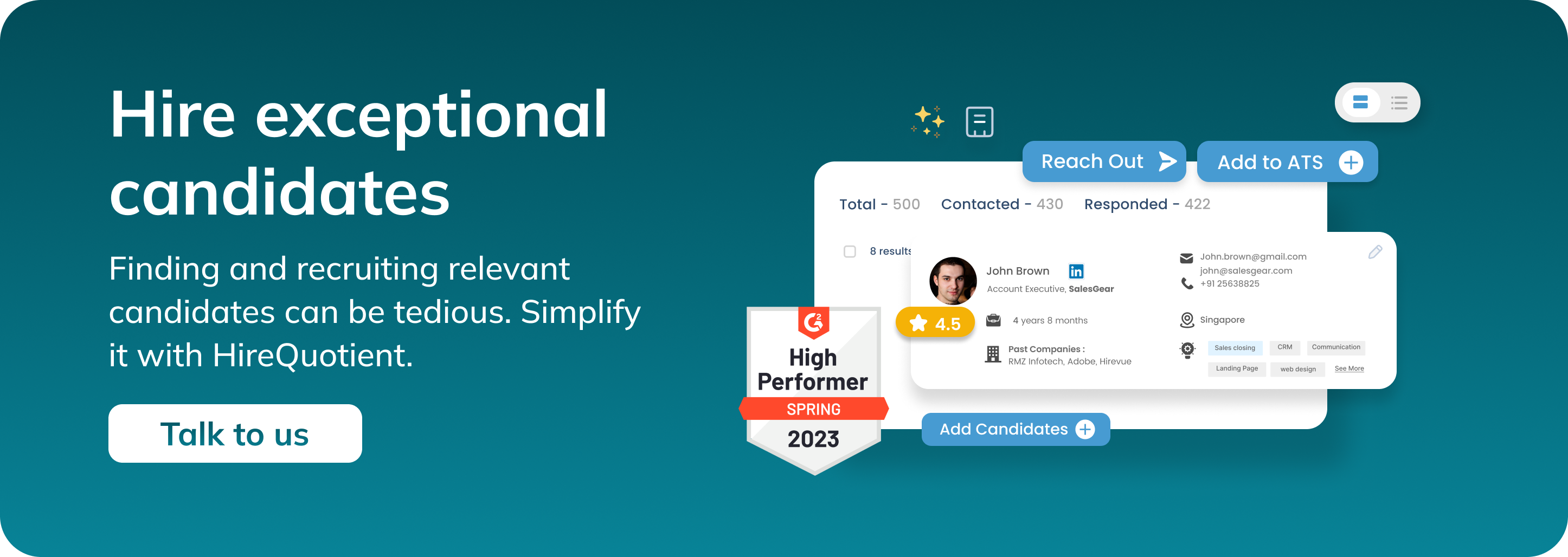What are the Different Types of Internships?
Published on June 30th, 2023
Internships play a crucial role in shaping the careers of aspiring professionals by providing them with valuable industry experience and an opportunity to apply their theoretical knowledge in real-world scenarios. For recruiters, internships serve as a talent pipeline, allowing them to identify and nurture promising individuals. In this comprehensive guide, we will explore the various types of internships available today, their benefits, and how both recruiters and candidates can make the most of these opportunities.
Traditional Internships
Traditional internships are the most common type and typically involve a fixed duration during which interns work on specific projects or tasks within an organization. These internships offer a structured learning experience, enabling candidates to gain practical skills and industry knowledge. Recruiters benefit from this type of internship as they can evaluate interns' potential for future employment. According to NACE, 56% of interns are converted into full-time hires by their internship employers.
Virtual Internships
Virtual internships have gained popularity in recent years, allowing candidates to work remotely from any location. These internships offer flexibility and convenience, making them accessible to a wider pool of candidates. Recruiters benefit from virtual internships as they can tap into talent from different geographical areas, increasing diversity within their organizations. The COVID-19 pandemic has also accelerated the adoption of virtual internships, with 60% of employers shifting to remote internships during the crisis.
Co-op Internships
Co-op internships (or cooperative education) involve alternating periods of work and study. Students typically alternate between full-time work terms and academic semesters throughout their degree programs. Co-op internships provide candidates with an extended, immersive work experience, allowing them to develop deep industry knowledge and build professional networks. Recruiters benefit from co-op internships by gaining access to a pool of motivated, high-potential candidates. The National Society for Experiential Education found that 85% of employers are more likely to hire co-op interns as they often outperform their non-co-op counterparts.
Paid Internships
Paid internships provide candidates with financial compensation for their work. These internships help reduce financial barriers, making them accessible to a diverse range of individuals. Paid internships also enhance candidate motivation and commitment, leading to higher productivity levels. Recruiters benefit from offering paid internships as they can attract more qualified and motivated candidates. The 2021 Internship & Co-op Survey by NACE reported that 72% of employers provide monetary compensation to their interns.
Unpaid Internships
Unpaid internships, while controversial, still exist in some industries. Candidates in unpaid internships gain valuable experience, but they do not receive financial compensation for their work. Unpaid internships can provide a stepping stone into competitive industries, but they may limit accessibility for candidates from lower socioeconomic backgrounds. It is important for recruiters to ensure that unpaid internships comply with applicable labor laws and regulations.
Summer Internships
Summer internships are typically short-term opportunities that take place during the summer break from academic studies. They allow candidates to gain industry experience and explore potential career paths. Summer internships are beneficial for recruiters as they provide a larger talent pool during the summer months when students are available. According to the 2021 Internship & Co-op Survey by NACE, 57.5% of employers offer summer internships.
Conclusion
Internships come in various forms and offer unique benefits to both recruiters and candidates. Traditional internships, virtual internships, co-op internships, paid internships, unpaid internships, and summer internships all contribute to a holistic learning experience and talent acquisition strategy. By understanding the different types of internships and their advantages, both recruiters and candidates can make informed decisions and create meaningful connections that drive professional growth.
Remember, the internship experience should be mutually beneficial, fostering skill development, industry exposure, and the potential for future employment. Recruiters should strive to provide valuable learning opportunities, while candidates should actively engage in the experience and leverage it as a launchpad for their careers.
Discover HireQuotient, an innovative HR-tech platform designed to empower recruiters with a comprehensive suite of tools. From an automated talent sourcing tool to skills-based assessments and a one-way video interview platform, HireQuotient offers everything you need to find the ideal interns effortlessly.
Related Reads
Authors

Radhika Sarraf
Radhika Sarraf is a content specialist and a woman of many passions who currently works at HireQuotient, a leading recruitment SaaS company. She is a versatile writer with experience in creating compelling articles, blogs, social media posts, and marketing collaterals.
Hire the best without stress
Ask us how
Never Miss The Updates
We cover all recruitment, talent analytics, L&D, DEI, pre-employment, candidate screening, and hiring tools. Join our force & subscribe now!
Stay On Top Of Everything In HR


